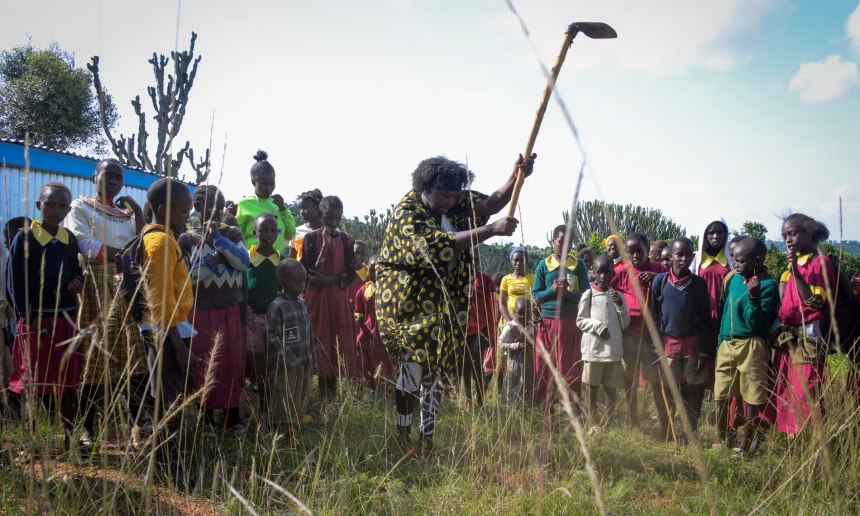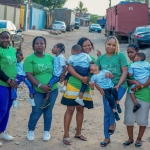In a community centre made of glass bottles, Juliana Loshiro stands before her pupils, a group of village elders. Sitting in a semi-circle, they listen and repeat simple words and greetings in Yaakunte (also called Yaaku), the language of their tribe.
Though it might seem strange that even older people cannot speak the language, one of the pupils stands up and explains why he is in the class: his grandparents died before they could teach him Yaakunte, he says, and his mother, a Maasai, did not know the language. “So we got lost.”
Loshiro, 28, is one of the few Yaaku people of northern Kenya who speak Yaakunte fluently – and, along with one of her sisters, the only young Yaaku. In the Unesco World Atlas of Languages, the United Nations lists the language as “severely endangered”, with only nine speakers. In 2010, Unesco declared Yaakunte to be extinct. But Loshiro is determined to give the language – and her culture – a future.
At the community centre in Kuri Kuri, a village in Kenya’s Laikipia county, Loshiro teaches about 300 students, both elders and children, twice a week. But the lessons are about more than just saving a language, they are about preserving the Yaakunte culture too.
The dense Mukogodo Forest, one of the largest in east Africa, is the traditional home of the Yaaku. Originally hunter-gatherers, they looked after the 300 sq km (74,000-acre) forest, using it for hunting, rituals and to collect plants and honey.
“If we lost the language, we have lost the culture, we have lost the forest,” she says.
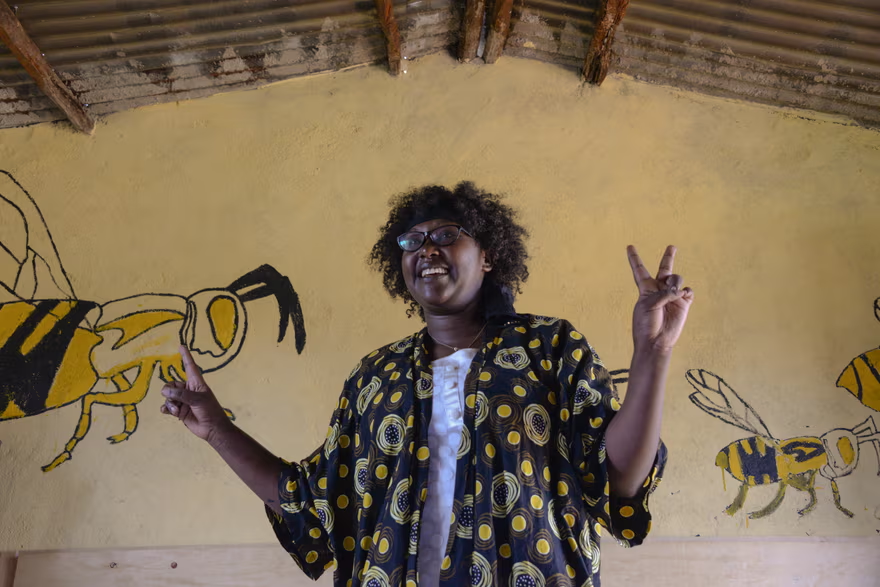
Loshiro, a mother of a one-year old boy, believes that by saving the language she is also safeguarding the knowledge it holds about the flora and fauna of the forest, empowering future Yaaku to protect it. “We are teaching our kids and passing our traditional knowledge to new generations,” she says.
Every week, she takes her students to the forest to plant indigenous trees such as wild olive or cedar. So far they have planted 10,000 seedlings and distributed 50,000 seedballs.
They then tag trees with labels that have words in Yaakunte and English. Loshiro calls it a word forest. “As the trees grow,” she says, “the language grows.”
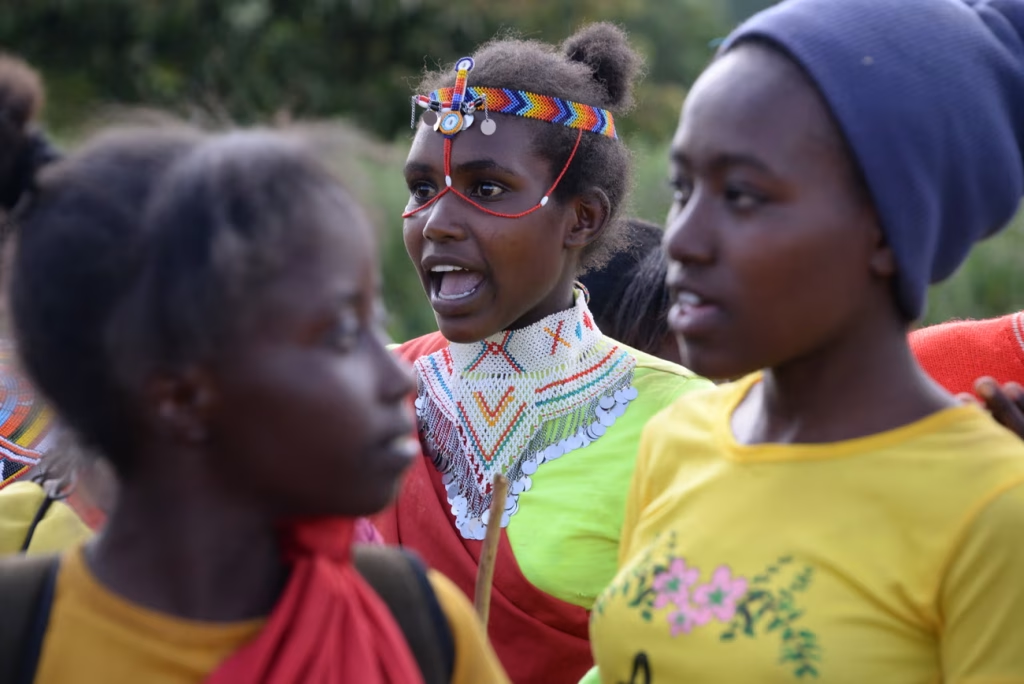
Today Mukogodo is managed by the Yaaku community rather than the Kenya Forest Service (KFS), which looks after most of the country’s wooded areas.
As conservation efforts around the world increasingly recognise, Indigenous knowledge can be crucial in protecting ecosystems and fighting the climate crisis. The Indigenous management of the Mukogodo forest has proved successful: the numbers and diversity of wildlife and tree cover, as well as the capacity of the water catchment, have all improved, the KFS reports.
Loshiro learned Yaakunte from her grandfather, Stephen Leriman, who raised her from the age of seven after her parents died. Every day he taught her 10 new words, and if she could not repeat them the next day, she was punished.
“There was a time I forgot three words and I slept without eating,” she remembers.
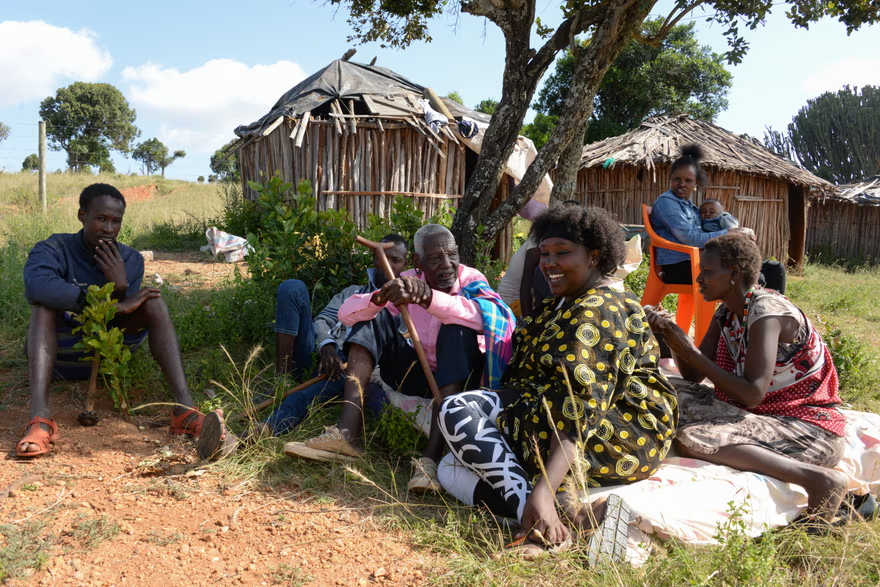
Changes in the 20th century pushed Yaakunte to the brink of extinction. The Yaaku lived alongside the Maasai, a pastoral community who looked down on the hunter-gatherers for not having livestock. According to Unesco, when Yaaku girls began marrying their neighbouring pastoralists, and parents received livestock as bride-wealth, Yaaku fathers began to demand cattle rather than just beehives as had been the Yaaku custom.
“The temptation to identify with pastoralists was stronger,” says Kenneth Ngure, a linguist at Kenyatta University. The Yaaku gradually assimilated into the Maasai, and gave up their language for Maa.
Kenya has about 45 ethnic communities and 70 languages, and Ngure estimates that up to seven languages were lost in the 20th century.
He is sceptical that the language can be revived through a few dedicated Yaakunte teachers, but in recent years the Yaaku have developed a renewed sense of pride in their identity.
The Yaaku teacher Manasseh Rux Ole Matunge – who has spent three decades recording information on Yaakunte, teaching and advocating for its preservation – believes “the new movement” that Loshiro is spearheading has a chance of reviving the language.
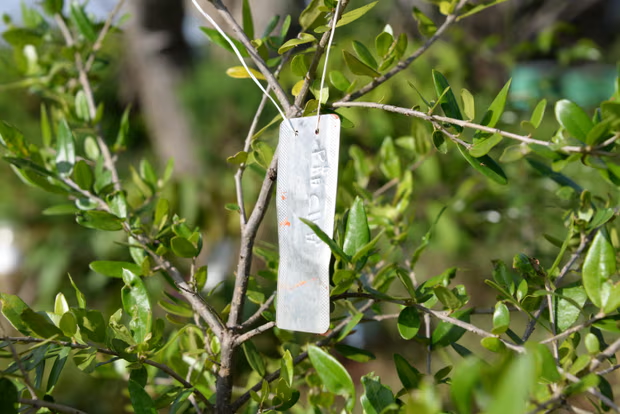
Loshiro is working on other ways to preserve Yaakunte, including building a website and app to digitise the language and make learning easier; creating an archive of audio recordings of Yaakunte words, phrases and stories; and working on a curriculum for primary schools.
Her aim is to enrol about 40 children a year into her language programme; she hopes they will be fluent in Yaakunte after five years of classes.
“My goal is that by the end of the day, the language is spoken [and] that my kids also – apart from language – know their culture.”

